- Vision-based fall detection AI February 17, 2022
Human-like care is difficult to replicate. Due to the lack of a reliable vision-based fall detection AI, it is often more effective to assign a lot of manpower towards vision-based detections that have not been efficiently implemented.
Ms Inturi Anita Rani, Research Scholar in the Department of Computer Science Engineering, working with her supervisor, Dr V. M. Manikandan, has worked on a paper titled, “A Novel Vision-Based Fall Detection Scheme using Keypoints of Human-Skeleton with Long Short-term Memory Network” in the Arabian Journal for Science and Engineering published by Springer with an Impact Factor of 2.33.
Abstract of the research:
Humans are skilled at visually recognizing and classifying actions in videos, but it’s tough to automate this process. Human action detection in videos is useful in applications like automated surveillance, assisted living, human-computer interaction, content-based video retrieval, and video summarization. The ability to recognize atomic actions like “walking,” “bending,” and “falling” is critical for activity analysis when monitoring elderly people’s daily activities. Our paper presents a new promising solution for fall detection using vision-based approaches. In this approach, we analyse the human joint points which are the prime motion indicators. A set of keypoints of the subject are acquired by applying the AlphaPose pre-trained network. These keypoints are inferred to be the joint points of the subject. The acquired keypoints are processed through a framework of convolutional neural network (CNN) layers. Here, the spatial correlation of the keypoints is analysed. The long-term dependencies are then preserved with the help of long short-term memory (LSTM) architecture. Our system detects five types of falls and six types of daily living activities. We used the UP-FALL detection dataset for validating our fall detection system and achieved commendable results when compared to the state-of-the-art approaches. For comparison, we employed the OpenPose network for keypoint detection. It is inferred from the results that the AlphaPose network is more precise in keypoint detection.
About the research paper:
In this paper, the author proposes a vision-based system that is capable of detecting various types of falls accurately through video processing with the help of a machine learning approach.
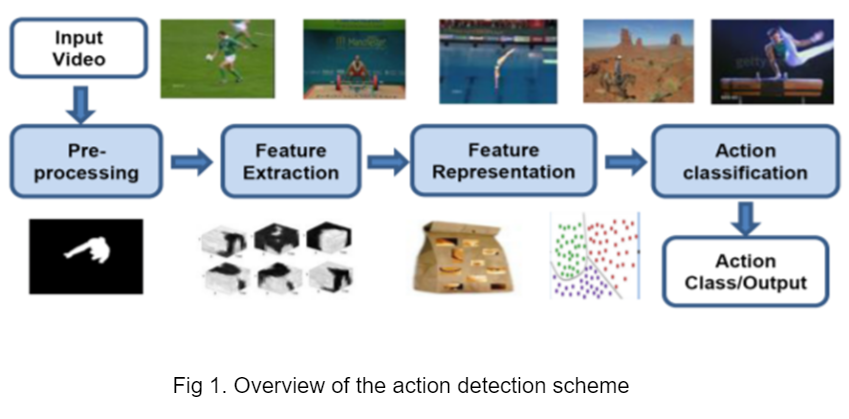
Implementation of the research:
The proposed scheme can be used to monitor the activity of elderly people and if any unusual falls happen, the information can be shared with caretakers to ensure emergency services.
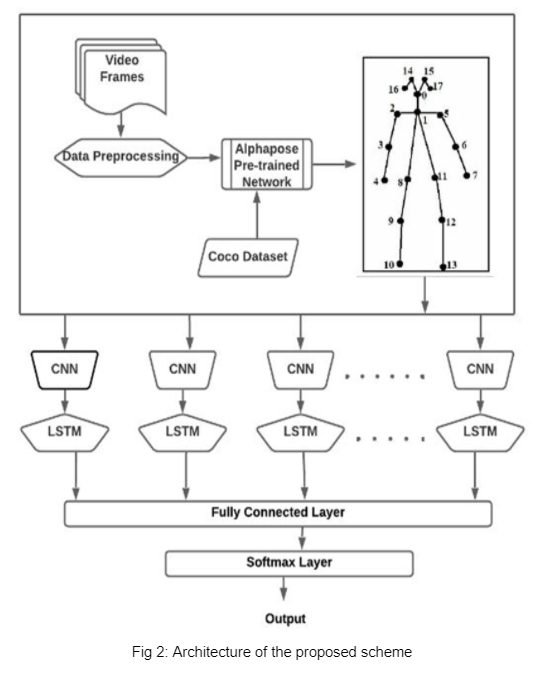
- Dr Meenakshi Choudhary February 16, 2022
- ECE at SRM AP – Opportunities and Career Prospects February 15, 2022
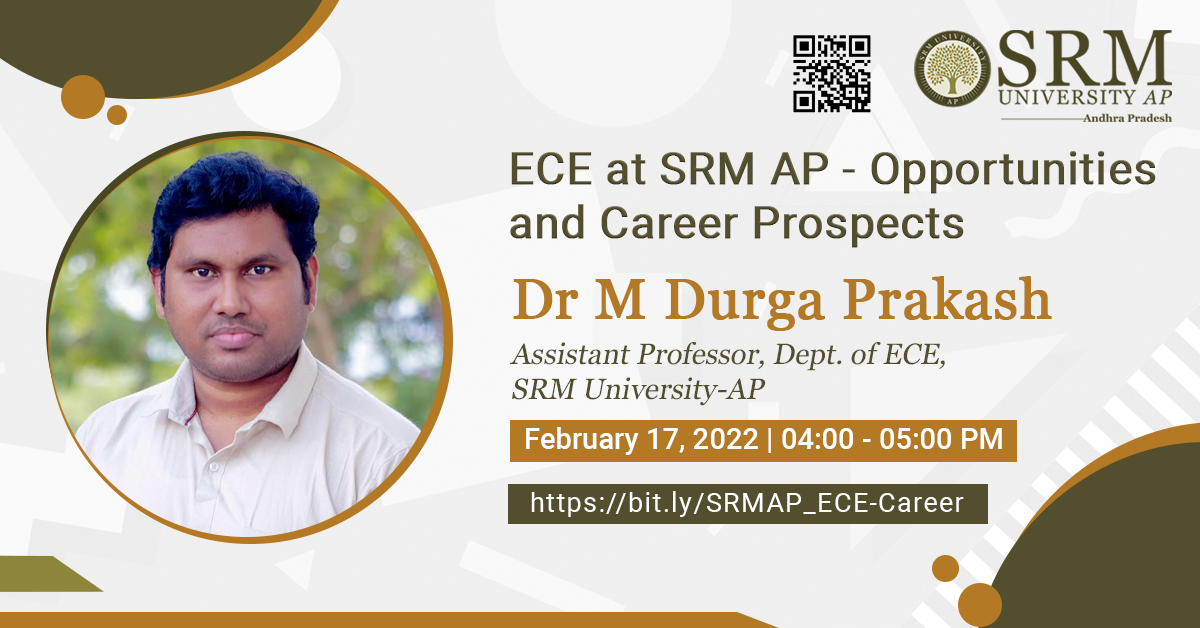 Electronics and Communications Engineering has many career prospects. Studying ECE at SRMAP will open the students to an array of opportunities in India and abroad. Students can learn from the industry experts and grow their expertise through the unique opportunities provided to them by our institution which include studying abroad opportunities, industrial collaborations, international internship opportunities and many more.
Electronics and Communications Engineering has many career prospects. Studying ECE at SRMAP will open the students to an array of opportunities in India and abroad. Students can learn from the industry experts and grow their expertise through the unique opportunities provided to them by our institution which include studying abroad opportunities, industrial collaborations, international internship opportunities and many more.Join the webinar on ECE at SRM AP- Opportunities and Career Prospects by Dr Durga Prakash, Assistant Professor, Department of ECE to learn more about the pathways that are open for the students who pursue BTech in Electronics and Communications Engineering.
Date: February 17, 2022
Time: 04.00 pm IST
About the Speaker:
Dr Durga Prakash is an Assistant Professor in the Department of Electronics and Communications Engineering. His key research interests lie in Microelectronics & VLSI, Semiconductor Device Modelling, Design & Simulations, Micro/Nano Fabricated Electrical Devices, and Biosensors and MEMS. He has over 15 years of professional experience.
Click here to join.
- Reading Skills: Insights from a Historian February 14, 2022
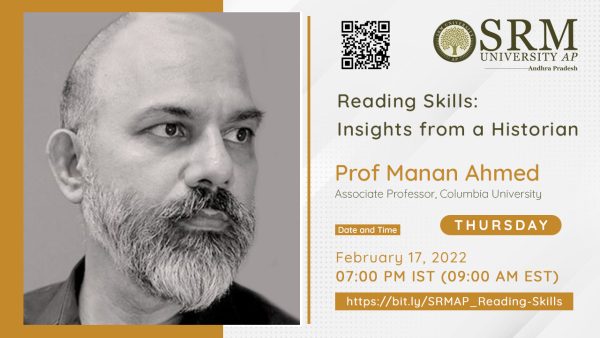 Reading means something different for everyone. Each person develops their reading skills as per their requirements. Some read to find information while others read to mine information. Some read to learn, and some read to laugh, some read to be entertained and some to escape. From reading the labels on new products to newspapers to novels, the objectives of reading can be plenty.
Reading means something different for everyone. Each person develops their reading skills as per their requirements. Some read to find information while others read to mine information. Some read to learn, and some read to laugh, some read to be entertained and some to escape. From reading the labels on new products to newspapers to novels, the objectives of reading can be plenty.The Department of English is bringing Prof Manan Ahmed – Associate Professor, Columbia University to shed light on the reading approach and the reading skills of a historian in an interesting and interactive session.
Date: February 17, 2022
Time: 07.00 pm IST
About the Speaker:
Manan Ahmed, Associate Professor of History at Columbia University in the City of New York, is a historian of South Asia and the littoral western Indian Ocean world from 1000-1800 CE. His areas of specialisation include intellectual history in South and Southeast Asia, critical philosophy of history, colonial and anti-colonial thought. Two of his books The Loss of Hindustan: The Invention of India (2020) and A Book of Conquest: The Chachnama and Muslim Origins in South Asia (2016) are published by Harvard University Press.
Abstract:
“Reading Skills” brings to mind dreadful reading comprehension passages given in schools and courses in communication skills. However, reading is much more about finding answers to given questions. It is about finding the questions to ask of a passage, blog, article, literary texts, and historical texts. In this talk and interaction, Prof Manan Ahmed would walk us through a historian’s approach to reading. The programme is intended to be a part of the department’s larger initiative to organise interactions around “Language and Society” to address all kinds of conversations about language, communication, writing, speaking, thinking, and at a deeper level, about connecting with others.
Click here to join this exclusive session and develop an insight on reading through the experiences of our esteemed speaker.
- SRM University-AP publishes as the lead author among 21 co-authors from 13 countries February 14, 2022
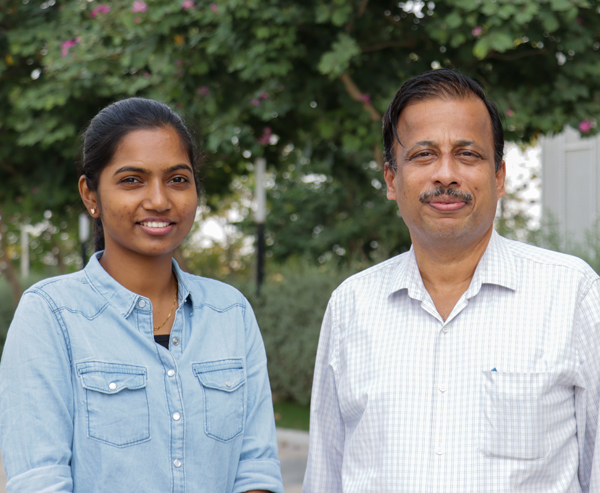 “Progress in Alternative Strategies to Combat Antimicrobial Resistance: Focus on Antibiotics” is a paper authored by Prof Jayaseelan Murugaiyan, Professor & Head, Department of Biological Sciences at SRM University-AP and his research scholar Ms Saranya Adukkadukkam, in Antibiotics Journal, having an impact factor of 4.639. It is a remarkable achievement that our university served as the first and the corresponding authors of this paper published in association with “Global AMR Insights Ambassadors Network”. A total of 21 co-authors from 13 countries (India, UK, France, The Netherlands, Switzerland, Italy, Spain, Ukraine, Lebanon, Egypt, Uganda, Bangladesh, and Nigeria) and six Indian universities (including SRM AP) participated in this work.
“Progress in Alternative Strategies to Combat Antimicrobial Resistance: Focus on Antibiotics” is a paper authored by Prof Jayaseelan Murugaiyan, Professor & Head, Department of Biological Sciences at SRM University-AP and his research scholar Ms Saranya Adukkadukkam, in Antibiotics Journal, having an impact factor of 4.639. It is a remarkable achievement that our university served as the first and the corresponding authors of this paper published in association with “Global AMR Insights Ambassadors Network”. A total of 21 co-authors from 13 countries (India, UK, France, The Netherlands, Switzerland, Italy, Spain, Ukraine, Lebanon, Egypt, Uganda, Bangladesh, and Nigeria) and six Indian universities (including SRM AP) participated in this work.Antimicrobial resistance (AMR) – the ability of microorganisms to survive antimicrobials – is a global healthcare concern. AMR contributes to 1.27 million deaths among the 4.95 million deaths associated with bacterial AMR. If no control measures are taken, it is estimated that by 2050, it will claim the lives of 300 million people. The rise of these “superbug bacteria’s” – means that trivial medical interventions will soon become once again high-risk since no efficient antimicrobial chemotherapy is available. It is, therefore, crucial to understand the current situation and identify alternatives to combat the emergence and spread of antimicrobial resistance. This paper comprehensively discusses the alternative approaches that can be effectively utilised to combat AMR and, at the same time, without inducing further resistance among the pathogens. The paper has great social implications in making society aware of the scenario and encouraging the researchers to focus on alternative strategies to combat AMR.
Abstract of the paper: Antibiotic resistance, and, in a broader perspective, antimicrobial resistance (AMR), continues to evolve and spread beyond all boundaries. As a result, infectious diseases have become more challenging or even impossible to treat, leading to an increase in morbidity and mortality. Despite the failure of conventional, traditional antimicrobial therapy, in the past two decades, no novel class of antibiotics has been introduced. Consequently, several novel alternative strategies to combat these (multi-) drug-resistant infectious microorganisms have been identified. The purpose of this review is to gather and consider the strategies that are being applied or proposed as potential alternatives to traditional antibiotics. These strategies include combination therapy, techniques that target the enzymes or proteins responsible for antimicrobial resistance, resistant bacteria, drug delivery systems, physicochemical methods, and unconventional techniques, including the CRISPR-Cas system. These alternative strategies may have the potential to change the treatment of multi-drug-resistant pathogens in human clinical settings.
Global AMR Insight Ambassador Network: AMR Insights, an international network-based organisation interacting with professionals around the globe: in Human and Veterinary Health, Agri-food and Environment, was set up in 2017 following an in-depth feasibility study towards a new information platform on AMR. It mainly focuses on informing, educating and connecting people with the aim to curb antimicrobial resistance. Prof Jayaseelan Murugaiyan and Ms Saranya Adukkadukkam are members of the Global AMR Insights Ambassador Network.
Ms Saranya Adukkadukkam, the co-author from SRM AP says:
The guidance of Prof Jayaseelan Murugaiyan is the pillar of my research. His support and passion for research always encourage me. He gives importance to translational research and motivates me to stand unique in the field. He shows me a path where I can serve the people through research. Foreseeing my future as a scientist, he guides me to more opportunities to collaborate with international scientists. I feel proud of my mentor Prof Jayaseelan Murugaiyan for letting me fly. Also, I thank SRM University-AP for providing generous fellowship, excellent research facilities and ambience to carry out the research.

